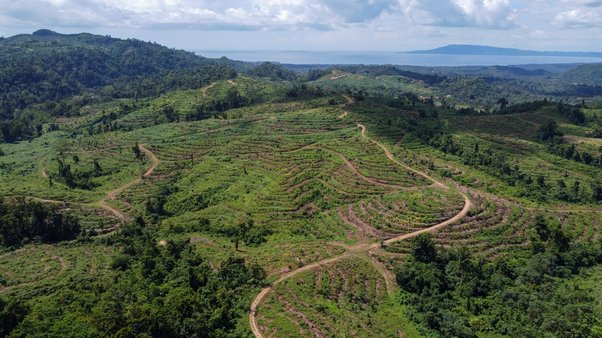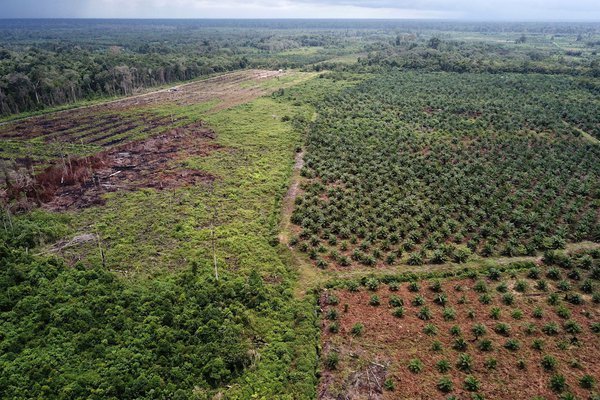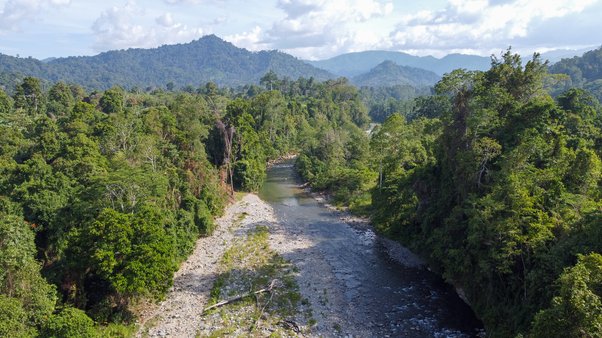Papua New Guinea’s rainforests are being torn down at an alarming rate, and the people whose lives depend on them are facing intimidation and abuse when they try to speak out, says Global Witness
One of these activists, Paul Pavol, will receive this year’s Alexander Soros Foundation prize for environmental and human rights, in recognition of the bravery and tenacity he has shown in the face of the world’s largest tropical logging company, Rimbunan Hijau, and its supporters in government. (1)
Protecting His Land | Paul Pavol | Global Witness
Global Witness investigations have revealed how Paul and fellow activists have been threatened and even beaten up by police for taking a stand against the logging, and many have received restraining orders banning them from the land around their homes.
Since 2011 Rimbunan Hijau has exported timber worth around US$ 70,000,000 from Paul’s small community in Pomio alone - enough to fill the Empire State Building. Paul’s case is just one of many across the country – the government has leased over 50,000 km2 of community land to logging companies, 12 per cent of the country’s landmass, through a mechanism known as Special Business and Agriculture Leases (SABLs).
“Across Papua New Guinea, tens of thousands of people are having their land stolen, often violently, and their rainforests destroyed - for timber that’s sold around the world,” said Rick Jacobsen of Global Witness. “In some cases, communities say that key documents showing they agreed to give away their land are fraudulent, and include the forged signatures of children and the deceased.”
The vast majority of timber from Papua New Guinea is shipped to China, the world’s biggest importer of rainforest timber, which has no laws banning illegal wood. Once imported it is turned into products like flooring and furniture and either consumed in-country or sold to international buyers. Much of this is ending up in the United States and European Union, despite regulations in place to keep illegal wood and wood products out of both markets.
“My community depends on our land and forests for our survival, and I cannot stand by and watch it be permanently destroyed,” Paul Pavol said. “I have no choice but to stand up and raise my voice because if we do not defend our land, no one will. We started this fight in 2010, and I am not going to stop until there is justice and our land is safe. I hope that this moment is a major turning point in our fight.”
Standing Against Deforestation | Paul Pavol | Global Witness
“The tropical logging industry is shot through with illegality, corruption and human rights abuses. The same companies that are illegally grabbing land, trashing rainforests and destroying livelihoods in Papua New Guinea are doing this across Asia, as well as in Africa and Latin America,” said Jacobsen. “This won’t change unless companies that trade in rainforest timber ensure that it has been sourced legally and isn’t linked to social or environmental abuses.”
Global Witness is calling on:
- The government of Papua New Guinea to issue an immediate freeze on logging in all SABLs until their legality has been independently assessed, to nullify all SABLs found to have been issued illegally, and to return the land they include to the control of Papua New Guinean landowners.
- The government of China to take steps toward prohibiting the trade of illegal timber.
Notes to Editor:
(1) Global Witness put the allegations contained in our investigations to Rimbunan Hijau. The company has denied breaking any PNG laws; denied that fraud and forgery were involved in the issuance of the leases; and claimed that the majority of local people back the project. Rimbunan Hijau claims that it respects the rights of local people and minimises the environmental impact of its operations.


